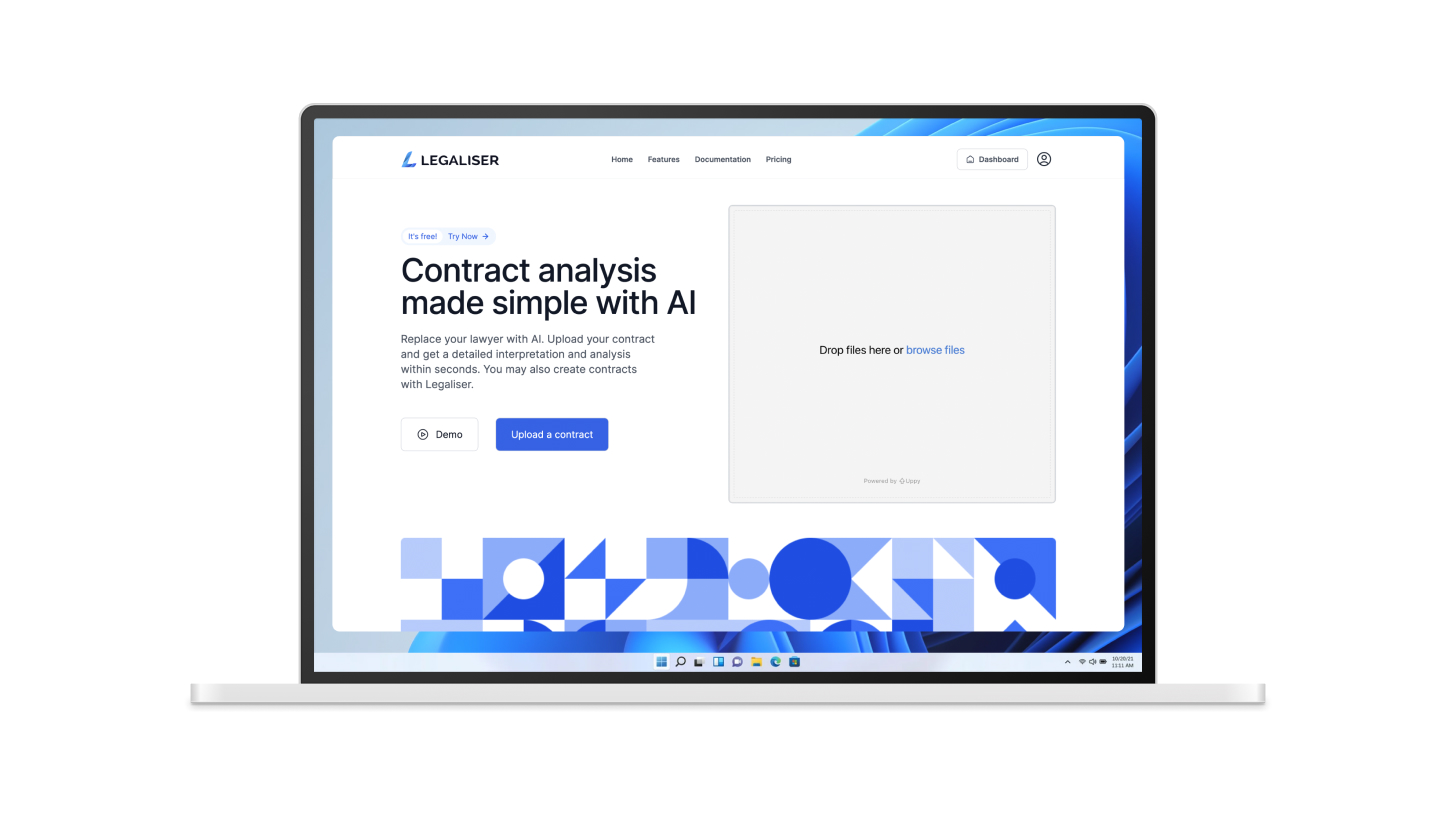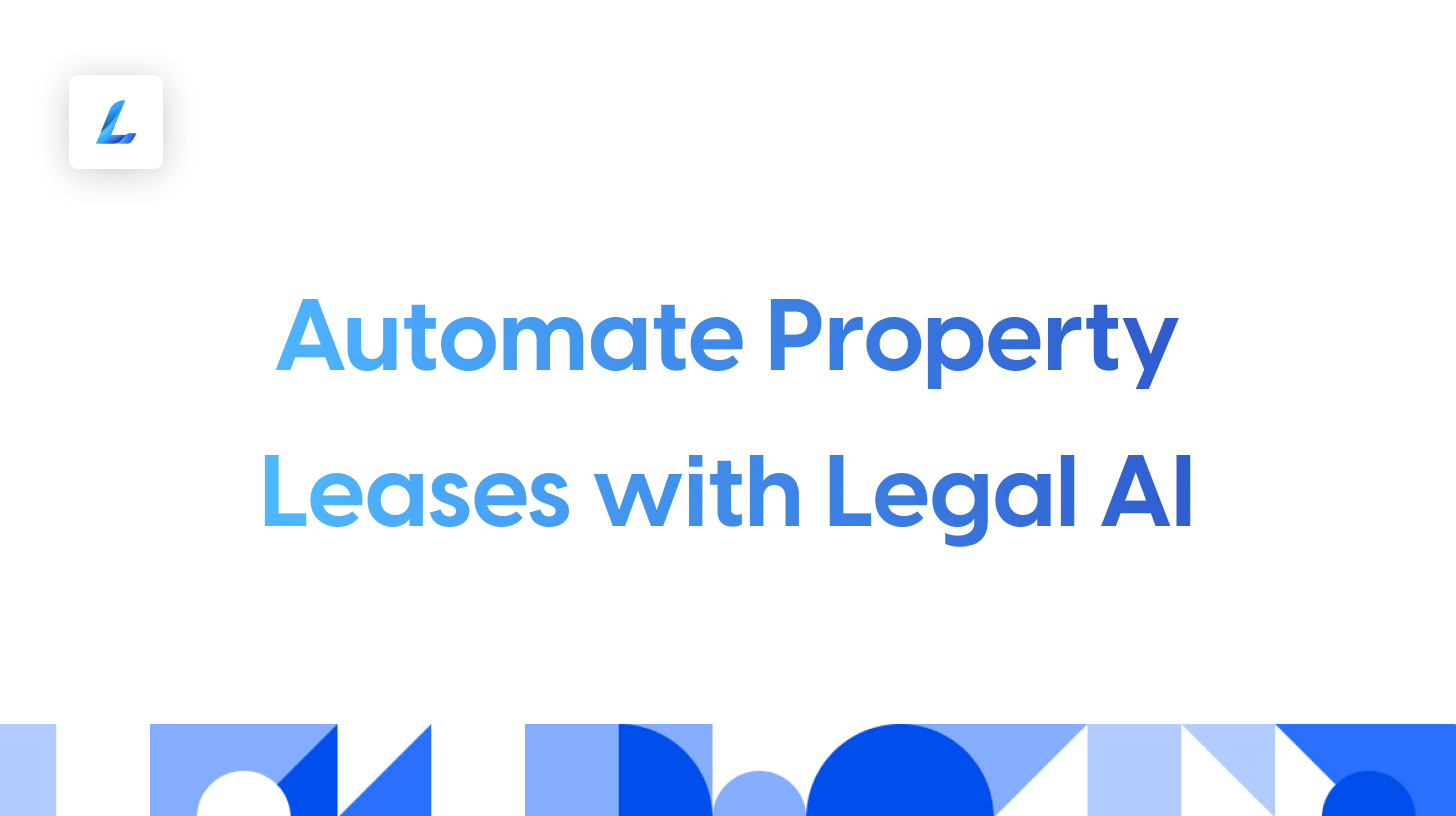Automate Property Leases with Legal AI: Enhancing Efficiency and Precision
In the realm of real estate, property leases play a pivotal role in defining the relationships between landlords and tenants. The process of drafting, negotiating, and signing lease agreements is a critical aspect of property management, yet it often poses challenges.
Enter Legal AI, an innovative solution that has the potential to speed up property leases by automating the process, reducing errors, and ensuring that important contract elements are not overlooked.
One standout tool in this field is Legaliser, an advanced AI Legal platform designed to review legal contracts and create a rock-solid foundation for property leases.
The Complex Landscape of Property Leases
Property leases are intricate legal documents that establish the terms and conditions under which a tenant can occupy a property owned by a landlord. These agreements cover a wide range of aspects, including rental amounts, lease duration, maintenance responsibilities, dispute resolution mechanisms, and more.
Given the diversity of properties, tenants, and legal regulations, property leases require careful consideration and negotiation to ensure that the interests of both parties are adequately protected.
However, the complexity of the leasing process and the volume of details involved can lead to errors. Missing even a single crucial detail can result in disputes that can escalate into costly legal battles, tarnishing relationships and causing financial losses for all parties involved.
The Role of Legal AI in Property Lease Automation

Legal AI has emerged as a transformative force in the legal industry, offering solutions to streamline and refine complex processes. The automation of property leases through Legal AI holds the promise of not only accelerating the leasing process but also reducing errors and mitigating risks. Here’s how Legal AI can automate property lease agreements:
1. Efficient Drafting: Legal AI tools can automate the drafting of property lease agreements by generating templates based on standardized clauses and variables specific to the property, tenant, and landlord. This eliminates the need for manual creation and ensures consistency in the language used.
2. Customization: While automation can create initial drafts, Legal AI also has the capability to customize lease agreements to match the unique requirements of each property and tenant. This adaptability ensures that each agreement is tailored to the situation at hand.
3. Accurate Review: Legal AI can meticulously review lease agreements, identifying discrepancies, ambiguities, and potential issues that might have been overlooked in a manual review. This accuracy minimizes the risk of disputes arising from poorly drafted contracts.
4. Compliance Assurance: Property leases must adhere to a complex web of local, state, and federal regulations. Legal AI tools can keep track of these regulations, ensuring that lease agreements remain compliant and up-to-date with legal requirements.
5. Timely Negotiation: Negotiations between landlords and tenants can sometimes lead to delays in finalizing lease agreements. Legal AI can expedite this process by offering real-time analysis and suggestions, making the negotiation process more efficient.
Introducing Legaliser: Elevating Property Lease Agreements

One noteworthy innovation in the realm of Legal AI is Legaliser, an advanced software designed to enhance the reliability of legal contracts, including property leases. Legaliser’s features are tailored to create a rock-solid foundation for property lease agreements:
1. Thorough Analysis: Legaliser conducts a comprehensive analysis of lease agreements, scrutinizing every clause and detail. It identifies potential pitfalls that might otherwise go unnoticed, ensuring that the agreement is watertight.
2. Language Expertise: Property lease agreements often contain complex legal language that can be challenging to interpret accurately. Legaliser employs advanced natural language processing to ensure that all parties understand the terms and conditions clearly.
3. Risk Mitigation: By identifying potential risks and suggesting amendments, Legaliser enables landlords and tenants to address issues proactively, reducing the likelihood of disputes arising during the lease term.
4. Recommendations for Enhancement: Legaliser goes beyond identifying problems; it offers practical suggestions for improving the lease agreement. These recommendations are based on legal best practices and precedents, ensuring that the contract is robust and defensible.
5. Time and Cost Savings: The efficiency of Legaliser translates to reduced time spent on reviewing and revising lease agreements. This not only accelerates the leasing process but also leads to cost savings for all parties involved.
The Synergy of Human Expertise and Legal AI
While Legal AI tools like Legaliser offer immense value in automating property leases and ensuring the accuracy of contracts, they are not explicitly designed to replace the expertise of legal professionals. Rather, they function as collaborative tools that complement the capabilities of lawyers.
Generally the collaboration between legal experts and Legal AI is where the true power lies. Lawyers can leverage the insights provided by AI tools to make informed decisions and offer tailored advice to clients. Thus, the result is a synergy that combines the efficiency of automation with the expertise of legal professionals.
Conclusion
Property leases form the cornerstone of landlord-tenant relationships, shaping the interactions and obligations between parties. The complexities of lease agreements can often create disputes between parties. However, Legal AI, with tools like Legaliser, is poised to transform the landscape of property leasing by automating processes, enhancing accuracy, and fortifying contracts.
The marriage of technology and law has the potential to create lease agreements that are not only efficient but also solid and reliable. While property leasing will always involve intricate negotiations and legal considerations, Legal AI tools like Legaliser offer a promising path toward expediting the process. As legal tech continues to evolve, the future of property leases holds the promise of mutually beneficial agreements for landlords and tenants alike.






